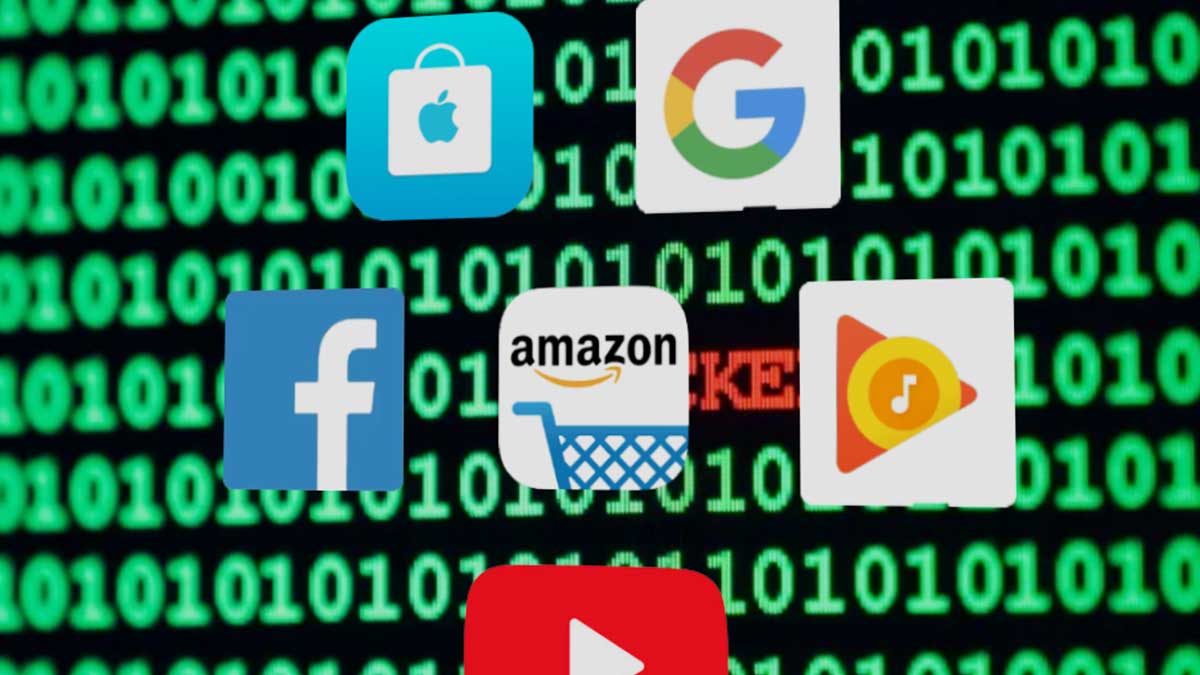- Home
- Billionaires
- Investing Newsletters
- 193CC 1000
- Article Layout 2
- Article Layout 3
- Article Layout 4
- Article Layout 5
- Article Layout 6
- Article Layout 7
- Article Layout 8
- Article Layout 9
- Article Layout 10
- Article Layout 11
- Article Layout 12
- Article Layout 13
- Article Layout 14
- Article Sidebar
- Post Format
- pages
- Archive Layouts
- Post Gallery
- Post Video Background
- Post Review
- Sponsored Post
- Leadership
- Business
- Money
- Small Business
- Innovation
- Shop
Recent Posts
Rising Password Hacking Threats Target Gmail, Facebook, Amazon

A recent analysis by cybersecurity researchers at Kaspersky has revealed a significant increase in password-stealing attacks targeting users of major online platforms like Amazon, Facebook, and particularly Google. This uptick in cybercriminal activity highlights the escalating risks that users of these platforms face, emphasizing the importance of enhanced vigilance and protective measures. Gmail, Facebook, and Amazon accounts are especially attractive to hackers due to the vast amount of personal and financial information they contain. By gaining access to these accounts, attackers can engage in various forms of cybercrime, including data theft, malware distribution, and credit card fraud. Google accounts, in particular, are highly valuable because they often serve as a gateway to other sensitive accounts and personal data. Gmail, with its widespread use, is a significant target due to the sensitive information it often contains, such as password reset links and second-factor authentication codes.
Kaspersky’s research involved analyzing 25 of the world’s largest and most popular brands to determine which are most frequently targeted by cybercriminals in phishing attacks. The findings were alarming: during the first half of 2024 alone, there were approximately 26 million attempts to access malicious sites disguised as these brands, representing a 40% increase compared to the same period in 2023. Phishing remains one of the most effective tools for cybercriminals, as it involves impersonating trusted brands to deceive users into providing their login credentials. The rise in phishing attacks indicates that cybercriminals are becoming more sophisticated in their methods and increasingly targeting popular online platforms.
Google emerged as the most targeted brand, with Kaspersky reporting a 243% increase in phishing attempts aimed at Google users in the first six months of 2024. During this period, Kaspersky’s security solutions blocked approximately 4 million phishing attempts directed at Google accounts. This sharp rise in attacks underscores the immense value that cybercriminals place on Google account credentials. Olga Svistunova, a security expert at Kaspersky, noted that a criminal who gains access to a Gmail account could potentially access multiple services linked to that account, making it a prime target for cyberattacks. Given the interconnected nature of online accounts, compromising a single Gmail account could lead to a cascade of breaches across other platforms.
In addition to Google, Facebook and Amazon users have also been heavily targeted by phishing attacks. Kaspersky’s research found that there were 3.7 million phishing attempts directed at Facebook users and 3 million attempts targeting Amazon users in the first half of 2024. These figures place Facebook and Amazon among the top three most targeted brands, alongside Google. Facebook accounts can provide attackers with access to a user’s social connections, personal messages, and even financial details if linked to payment services. Similarly, Amazon accounts often store payment information, making them a lucrative target for cybercriminals looking to commit credit card fraud.
While Google, Facebook, and Amazon were the most targeted, they were not the only brands under threat. Kaspersky’s top ten list of most targeted brands also included Microsoft, DHL, PayPal, Mastercard, Apple, Netflix, and Instagram. These platforms hold significant amounts of user data and are therefore valuable targets for cybercriminals. Additionally, Kaspersky identified several other brands that experienced a dramatic increase in phishing attacks during the first half of 2024. These included HSBC, eBay, Airbnb, American Express, and LinkedIn. The rise in attacks against these brands indicates that cybercriminals are expanding their reach and diversifying their targets.
The increase in phishing attacks observed by Kaspersky is concerning, but it is important to understand the factors contributing to this trend. Kaspersky’s researchers attribute the rise in attacks to an increase in fraudulent activity rather than a decline in user vigilance. Cybercriminals are constantly evolving their tactics, making it more challenging for users to identify and avoid phishing attempts. This trend underscores the importance of continued vigilance and proactive security measures. Users must be aware of the risks and take steps to protect their accounts. This includes using strong, unique passwords for each account, enabling two-factor authentication, and being cautious when clicking on links or providing personal information online.
To help users defend against phishing attacks, companies like Google, Facebook, and Amazon provide resources and guidance on how to recognize and report phishing attempts. It is crucial for users to familiarize themselves with these resources and remain vigilant when using online services. By staying informed and taking proactive steps to protect their accounts, users can significantly reduce their risk of falling victim to phishing attacks. As cybercriminals continue to target popular online platforms, the importance of cybersecurity awareness cannot be overstated.
Recent Posts
Categories
- 193cc Digital Assets2
- 5G1
- Aerospace & Defense46
- AI37
- Arts3
- Banking & Insurance11
- Big Data3
- Billionaires449
- Boats & Planes1
- Business328
- Careers13
- Cars & Bikes76
- CEO Network1
- CFO Network17
- CHRO Network1
- CIO Network1
- Cloud10
- CMO Network18
- Commercial Real Estate7
- Consultant1
- Consumer Tech180
- CxO1
- Cybersecurity68
- Dining1
- Diversity, Equity & Inclusion4
- Education7
- Energy8
- Enterprise Tech29
- Events11
- Fintech1
- Food & Drink2
- Franchises1
- Freelance1
- Future Of Work2
- Games141
- GIG1
- Healthcare78
- Hollywood & Entertainment186
- Houses1
- Innovation42
- Investing2
- Investing Newsletters4
- Leadership65
- Lifestyle11
- Manufacturing1
- Markets20
- Media193
- Mobile phone1
- Money13
- Personal Finance2
- Policy567
- Real Estate1
- Research6
- Retail1
- Retirement1
- Small Business1
- SportsMoney33
- Style & Beauty1
- Success Income1
- Taxes2
- Travel10
- Uncategorized8
- Vices1
- Watches & Jewelry2
- world's billionaires418
Related Articles
Google Adds AI Scam Detection to Chrome After FBI Warning
In response to an alarming warning from the FBI about the growing...
By 193cc Agency CouncilDecember 20, 2024Google Alerts Gmail Users to Surge in Phishing Attacks
Google has issued a warning to its 2.5 billion Gmail users about...
By 193cc Agency CouncilDecember 20, 2024LockBit Ransomware Resurgence Set for February 2025
If you believed that law enforcement had successfully dismantled the notorious LockBit...
By 193cc Agency CouncilDecember 20, 2024Elon Musk’s Xmail Teaser Sparks Gmail Security Concerns
A seemingly innocuous post on X (formerly Twitter) by Elon Musk on...
By 193cc Agency CouncilDecember 16, 2024















Leave a comment